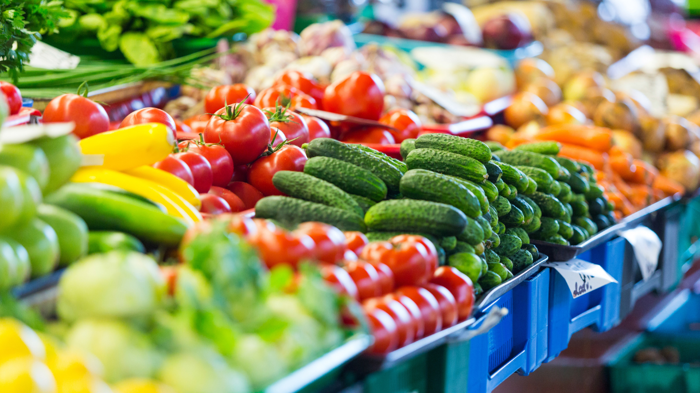More Than Just Monkey Business
January 1, 2018
Banana sales are steadily strong, but retailers can still benefit from added promotion and highlighting growers’ creative campaigns.
Bananas, America’s most popular fruit—literally, as industry observers say that more than 90 percent of households buy them each week—have nowhere to grow but up. Bananas are always a top seller in the fruit category, and as consumers continue to focus on a healthy lifestyle, there is no indication that this trend will change anytime soon.
Of course, retailers still need to present an attractive quality display of the fruit to make sure that consumers follow through with the often-planned purchase. “Retailers must implement the highest standards for care and handling procedures at the store level to ensure proper handling of the product,” says Fernando García-Salas, vice president of direct sourcing and sales for ONE Banana, based in Guatemala.
A well-maintained supply is also important, due to the high volume of consumers shopping the banana section. This means a fully stocked, well-merchandised display, visible at all times, says Bil Goldfield, director of communications for Westlake Village, Calif.-based Dole. He also recommends secondary displays that emphasize bananas as a grab-and-go option, or cross merchandising with complementary items like breakfast cereal or yogurt.
Periodic price promotion may also encourage purchases from the percentage of consumers that do not fall into the weekly buyer category. “When a retailer supports and promotes a product, it drives impulse purchases and drives incremental sales,” says Dionysios Christou, vice president, marketing for Del Monte Fresh Produce, based in Coral Gables, Fla. “Adding eye-catching point-of-sale materials, such as a banner, recipe card or nutrition information, is another way to gain the consumer’s attention.”
One section of the category experiencing natural growth is organic—demand for organic bananas is up, observers say, which is positive news for the category overall. “Since it allows us to target two relatively different consumers, organic is complementary and not necessarily competitive to our conventional banana business,” Goldfield says. To satisfy this demand, growers are ramping up production of organic. ONE Banana is developing a new organic farm in Peru—set to be one of the largest organic operations worldwide, García-Salas says—in addition to its organic farm in Ecuador.
Beyond Breakfast
Though bananas are a mature category that is popular year-round, that does not mean that suppliers and growers are not continually looking for ways to extend its reach. Typically a breakfast staple, growers and suppliers are working to expand consumers’ views on the fruit, so that more people will eat bananas later in the day.
“Dole and others have done such a good job associating bananas with the first two meals of the day, most folks don’t think of bananas at other times,” says Goldfield. “So we’ve initiated various campaigns like our ‘Go Bananas After Dark,’ campaign to encourage consumption after exercise, during dinner and as a healthier dessert. And we’re starting to see these efforts pay off.”
Creative promotional tactics are another popular way to encourage incremental category sales, like Get Up and Grow!, Dole’s most current healthy living initiative. Get Up and Grow! challenges North Americans to adopt an active lifestyle and a diet rich in fresh fruits and vegetables—with bananas at the center of the action. The program includes a tour to 44 U.S. cities featuring recipes and healthy living insights from the Dole Nutrition Institute; the Get Up and Grow! Pledge program for consumers to customize a healthy-living pledge; and a rewards program that includes the chance to win free produce.
This month, Del Monte Fresh Produce will kick off its fourth annual “Go Bananas! Halloween Costume Giveaway.” Another healthy-living program, it is designed to encourage better eating habits during the holiday and promote bananas as an alternative to traditional Halloween candy. During this sweepstakes, consumers will also have the chance to win one of 1,000 Del Monte banana Halloween costumes. Del Monte plans to support this initiative through point-of-sale materials on banana displays, social media and secondary banana stickers.
Fruit for Thought
Consumers love to support a company that has a positive impact on the world around it, and banana growers are making their causes known. Many growers are very involved in the communities that they operate in, and work diligently to better the lives of employees and their families.
September is GROW Month, the celebration of a social responsibility program initiated by Organics Unlimited. GROW—Giving Resources and Opportunities to Workers—focuses on giving back to the communities surrounding its banana growing regions, mainly Ecuador and Mexico. Since its inception in 2005, the program has raised nearly $2 million for its beneficiary communities.
“GROW was developed specifically to develop the communities where the bananas are grown,” says Mayra Velazquez De Leon, president of San Diego-based Organics Unlimited. “There is a lot of the work in both countries that has to do with education for the children of workers and children in the communities.
“The biggest share of the GROW money really goes toward educational programs to help raise the children that come from very poor backgrounds, to raise their opportunities through education,” Velazquez adds.
This year, Organics Unlimited is celebrating the 10th anniversary of the GROW program with a special campaign aimed to raise consumer awareness, and a new label. The social media campaign will use the hashtag #GROWTURNS10, so that consumers can share their purchases and show others how the program is making a difference.
ONE Banana also runs multiple corporate social responsibility-based programs, including its Nutritious School Snack Program, which partners with rural public elementary schools throughout Guatemala to reduce malnutrition in the areas surrounding ONE Banana farms. More than half a million bananas have been donated so far, García-Salas says.
The company also operates its Safe Water Program, which donates ecological filters to rural schools in Guatemala, mainly the locations that ONE Banana employees’ children attend. Through this program, García-Salas says, over 11,000 children have access to safe drinking water. s
About the Author
You May Also Like




